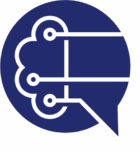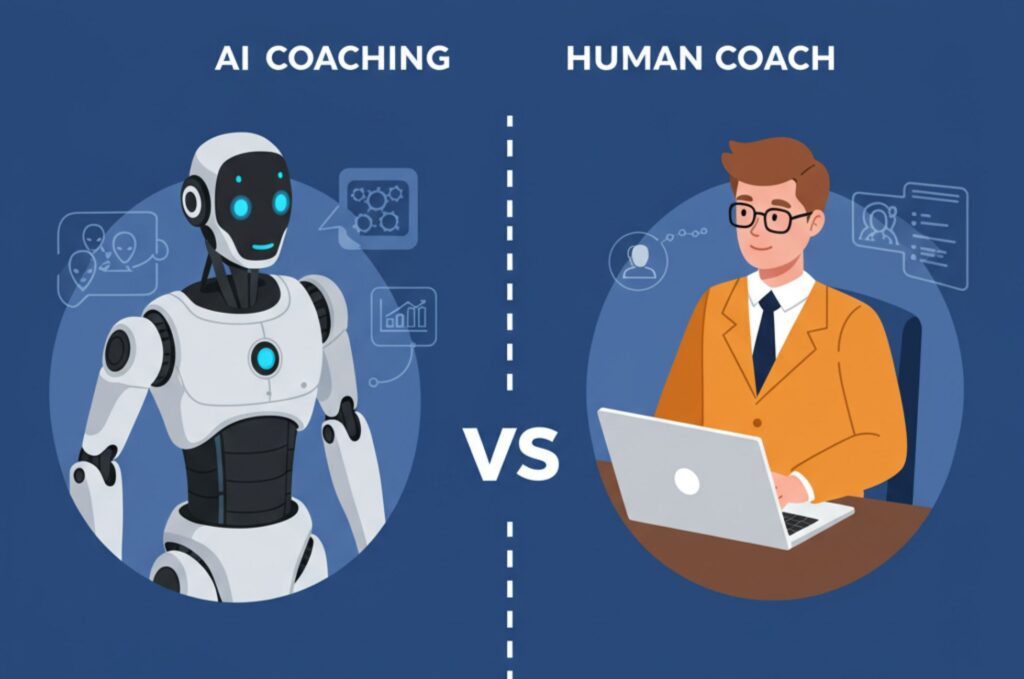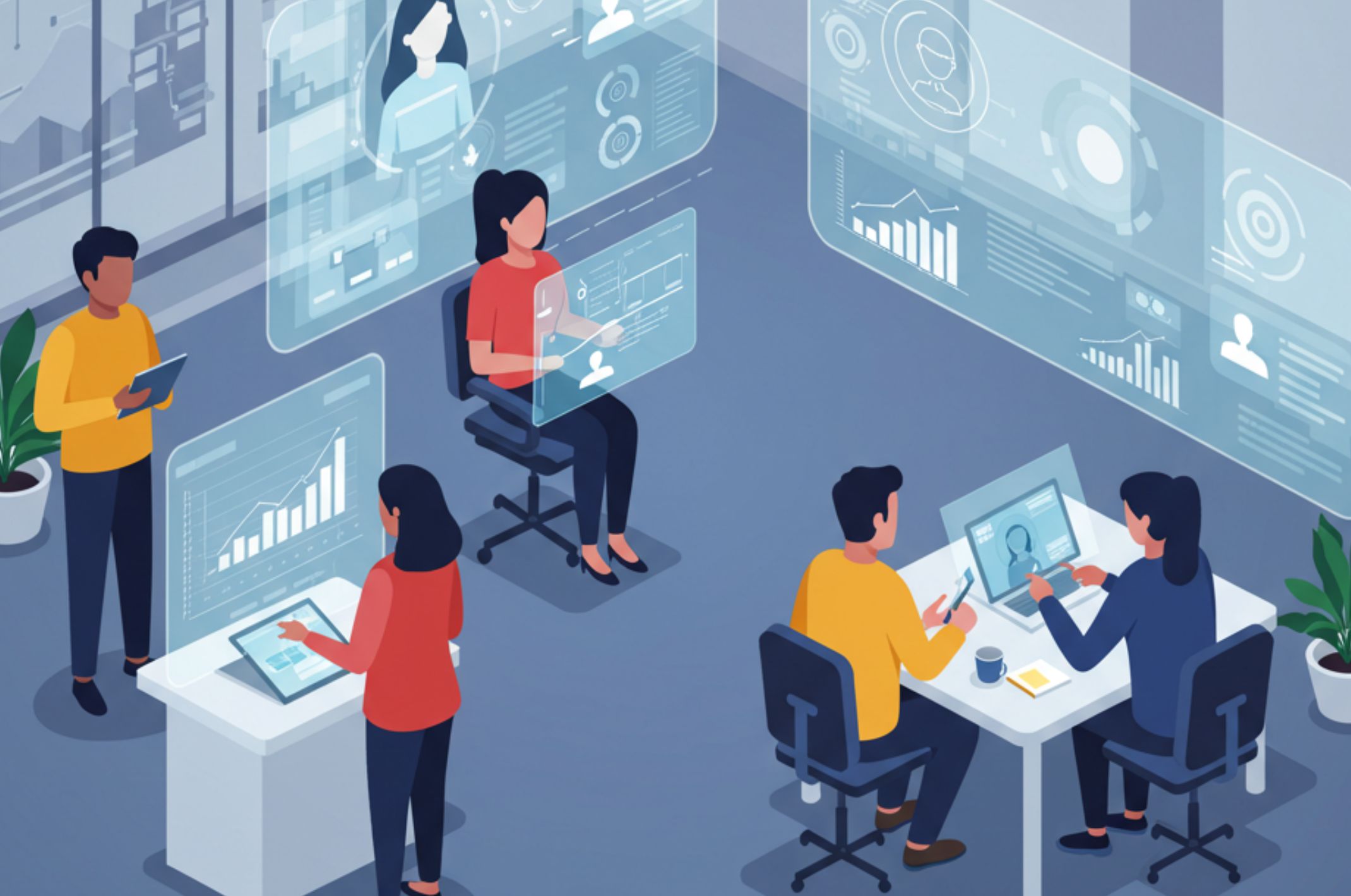Please be aware that the following content was generated using Artificial Intelligence (AI).
When the topic of AI coaching arises, it’s not uncommon for apprehension to creep in—especially for those familiar with the regional nuances of coaching and human connection. Questions abound: Will AI coaches replace their human counterparts, and what does this mean for the coaching profession as a whole? However, let’s take a moment to reconsider the narrative and explore how AI coaching can be seen not as a competitor, but rather as a complement to the invaluable work already performed by human coaches.
At AIcoach.chat, we believe that the integration of AI into the coaching landscape marks not an end, but a new beginning. With AI coaching, we’re not redefining what coaching is; instead, we’re augmenting the coaching experience that professionals already know and value. It’s crucial to understand that AI is not here to usurp the human touch that is so essential in coaching; rather, it exists to enhance, support, and scale coaching initiatives within organisations.
The reality is that AI coaching can democratise access to quality coaching on a larger scale than ever before. The traditional coaching model, while effective, often limits the reach of human coaches. One of the key drivers behind AI coaching vs human coaching is the ability to provide personalised support to many individuals simultaneously without compromising the quality of the conversation. This broader reach is particularly relevant for large organisations striving to implement a coaching culture across diverse teams, where traditional one-on-one coaching could be prohibitive in terms of time and budget.
Concerns about the quality of AI coaching are entirely valid and deserve attention. It’s essential to remain critically aware of how AI operates. AIcoach.chat utilises a non-directive coaching model that adheres to ethical guidelines and coaching best practices. This approach empowers coachees to drive their own conversations, with the AI serving as a facilitator rather than a directive leader. This alignment with coaching ethics preserves the quality and integrity of the coaching experience, allowing the AI to effectively gather insights on the coachee’s goals, actions, and challenges while maintaining confidentiality.
Furthermore, the results obtained through AI coaching can bolster the efforts of human coaches. By providing valuable data on common challenges and themes that emerge from AI-led conversations, human coaches can then tailor their sessions more effectively. It creates a feedback loop that empowers both parties—the AI gathers data, while human coaches can leverage those insights to deepen their understanding and improve their techniques.
But let’s pivot to how AI coaching can support individual accountability. In a world where employees are often inundated with responsibilities and distractions, AI can play a pivotal role in helping coachees stay committed to their goals. The immediacy and convenience of AI coaching mean that individuals can engage in thoughtful conversations when it suits them best, increasing the likelihood of maintaining momentum towards their personal and professional aspirations.
Couple this with the fact that AI coaching can be more cost-effective than traditional human coaching, and we start to see a clear pathway for organisations to make coaching accessible to even more employees. This is particularly significant when budgets are tightening and organisations seek efficient solutions that provide measurable results without sacrificing quality.
Addressing some common misconceptions can also alleviate the concerns surrounding AI and its role in coaching. For instance, it’s important to clarify that AI coaches do not and cannot replace the nuanced emotional intelligence or intuitive understanding that human coaches bring to the table. Rather, think of AI as a tool in a coach’s toolkit—enhancing their ability to connect with coachees and providing data-driven insights that can shape their practice.
In addition, the perception that AI may not be as effective due to the absence of a human presence overlooks one major aspect: many people actually prefer the anonymity of AI interactions. This neutral space can foster more honest and open conversations, enabling coachees to express themselves freely without the apprehensions they might feel in a traditional coaching setting.
There’s also a significant opportunity for organisations to leverage the combined strengths of AI and human coaching. Rather than viewing these modalities in isolation, businesses can explore a blended coaching strategy, where AI facilitates routine check-ins and data collection, whilst human coaches provide deeper, more transformative coaching experiences. This symbiotic relationship can ensure that each individual receives the right type of coaching at the right time.
Change is often met with resistance, particularly when it comes to adopting new technology. However, embracing AI coaching shouldn’t be about replacing what we already have; it should be seen as a progressive step towards creating a more inclusive and effective coaching landscape. Investing in AI coaching as a complementary resource not only supports individual coachees but also contributes to an organisation’s overarching goals, fostering a culture of continuous improvement, accountability, and personal development.
As we navigate through this exciting era of coaching, we invite you to reflect on how AI can enhance your coaching strategy. By integrating AI coaching alongside your existing frameworks, you move towards a more robust, transparent, and measurable approach that stands to benefit both your employees and the organisation as a whole.
If you’re ready to explore how AI coaching can support your coaching framework and drive impactful results, consider taking the first step and booking a conversation with us at AIcoach.chat. Together, let’s create a coaching culture that embraces the future while honouring the powerful legacy of human connection in coaching.




